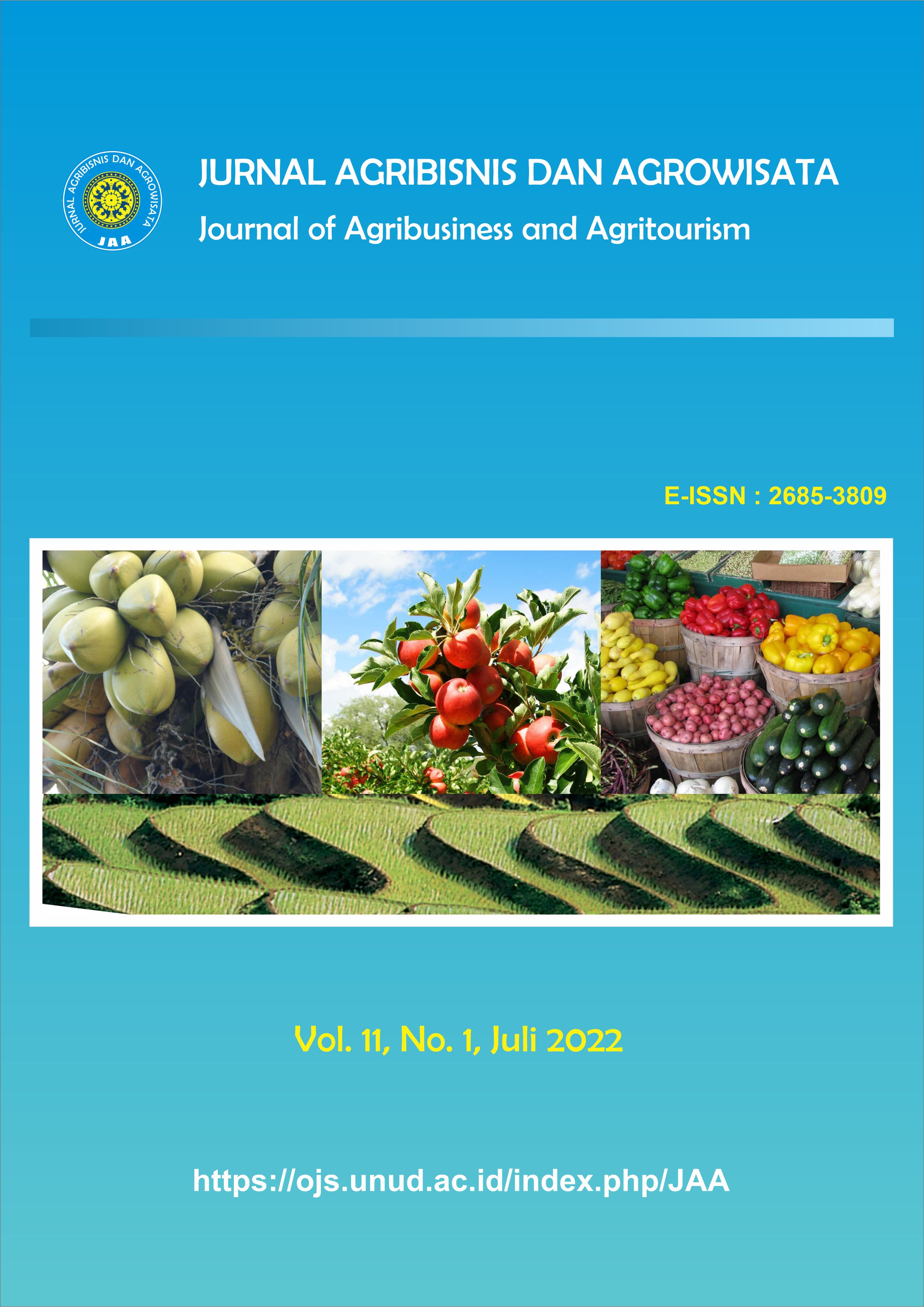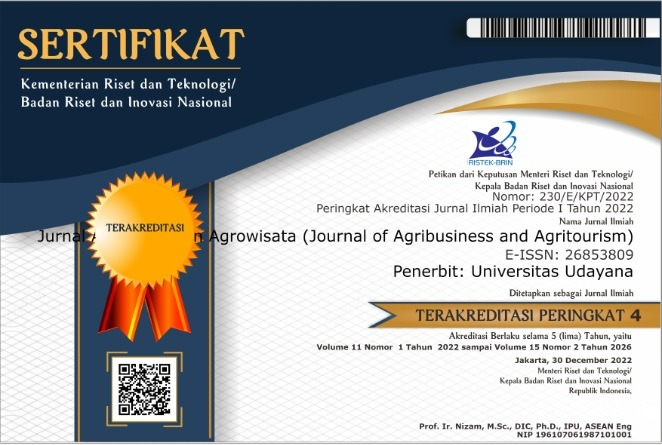Pengembangan Ekowisata di Desa Nyambu Kecamatan Kediri Kabupaten Tabanan
Abstract
Ecotourism Development in Nyambu Village, Kediri Sub-district, Tabanan Regency. Nyambu Village is an agricultural area located at the southern tip of Tabanan Regency, Bali Province. The sustainability of the agricultural system in Bali is very dependent on the subak irrigation system. Subak Mundeh, which is located in Nyambu Village, is very suitable to be developed as an object of ecotourism. The development of agriculture-based ecotourism is a tourism development model that has the potential to develop the agricultural and tourism sectors. Many factors influence the success of an ecotourism, so it is important to know the role of the Nyambu Village community and Subak Mundeh farmers in the development of Nyambu Village Ecotourism. This study used a descriptive analysis method with a research instrument in the form of a questionnaire. The number of respondents was 70 people, who were selected by accidental sampling technique. This research shows that Subak Mundeh farmers and the people of Nyambu Village work together in developing Nyambu Village Ecotourism, namely by preserving traditional arts and culture, subak regulations, historical monuments, and maintaining the sustainability of the environment. The Government should provide more support so that the development of Nyambu Village Ecotourism could be better.
Downloads
References
Murti dan Salamah.2005. Bab 3 Analisis Uji Validasi. Repository.unpas.ac.id> Bab3.pdf.
Pitana, I Gde Editor. 1993. Subak, Sistem Irigasi Tradisional di Bali. Denpasar: Upada Sastra.
Pitana, I Gde, 2003. Rice-Based Culture and Tourism Development in Bali. Jurnal Dinamika Kebudayaan Volt.V No. 3: 115-121. Universitas Udayana.
Sutawan. 2008. Organisasi dan Manajemen Subak di Bali. Denpasar: Pustaka Bali Post.
Sutawan, Nyoman. 2008. Eksistensi Subak di Bali: Perlukah Dipertahankan?. Denpasar: Upada Sastra.
Singarimbun, Masridan Sofian Efendi. 1989. Metodedan Proses Penelitian dalam Buku Metode Penelitian Survei. Jakarta: LP3ES.
Sugiyono. 2012. Bab 3 Analisis Uji Validasi. Repository.unpas.ac.id>Bab3.pdf.
Suliyanto. 2006. Bab 3 Analisis Uji Validasi. Repository.unpas.ac.id>Bab3.pdf.
Windia, Wayan dan Komala Dewi. 2011. Analisis Bisnis Berlandaskan Tri Hita Karana. Denpasar: Udayana University Press.







